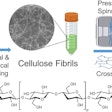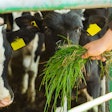
Other industries besides animal agriculture might share the blame for their environmental impact
Meatless Monday. Flexitarianism. Veganism. Planting trees. What’s the best way to reduce your carbon footprint?
How about cutting back on sweets and alcohol? According to a recent study out of Japan, households with higher carbon footprints consume more desserts and alcoholic beverages and dine out more often. So, while animal agriculture often gets a bad rap for its carbon footprint, it seems other industries might share the blame.
Researchers at the University of Sheffield and the Research Institute for Humanity and Nature in Kyoto, Japan, recently analyzed the carbon footprints of the diets of 60,000 households across Japan’s 47 regions.
The households all had similar meat intake, but their carbon footprints varied, suggesting that it’s not meat consumption that most affected their carbon footprint, but other factors.
“The study shows that meat consumption could explain less than 10% of the difference seen in carbon footprints between Japanese families. Instead, households with higher carbon footprints tended to consume more food from restaurants, as well as more vegetables and fish. However, it was the level of consumption of sweets and alcohol – two to three times higher than families with low carbon footprints – that really stood out,” according to the American Association for the Advancement of Science (AAAS).
The study found that dining out contributed on average 770 kg of greenhouse gases per year for those households with a higher footprint, whereas meat contributed 280 kg.
“If we are serious about reducing our carbon footprints, then our diets must change. Our findings suggest that high carbon footprints are not only a problem for a small number of meat lovers in Japan. It might be better to target less nutritious foods that are excessively consumed in some populations,” said one researcher involved in the study. However, the same researcher said that reducing meat consumption will lead to a lower carbon footprint.
One of the study’s co-authors said the research shows that dietary changes should be considered in the world’s industrialized regions, such as the U.S., Australia and Europe.
I think this study shows that there isn’t a silver bullet to fixing climate change and lowering our carbon footprint. Many industries, as well as our personal habits, contribute to the problem, but many companies and households around the world are making changes that can have a positive effect.
While animal agriculture often gets blamed for its large carbon footprint, many companies in the industry are working on ways to lower it, for example with feed additives, enzymes or methane inhibitors. Little changes like these across many sectors can go a long way, but it will take time.















